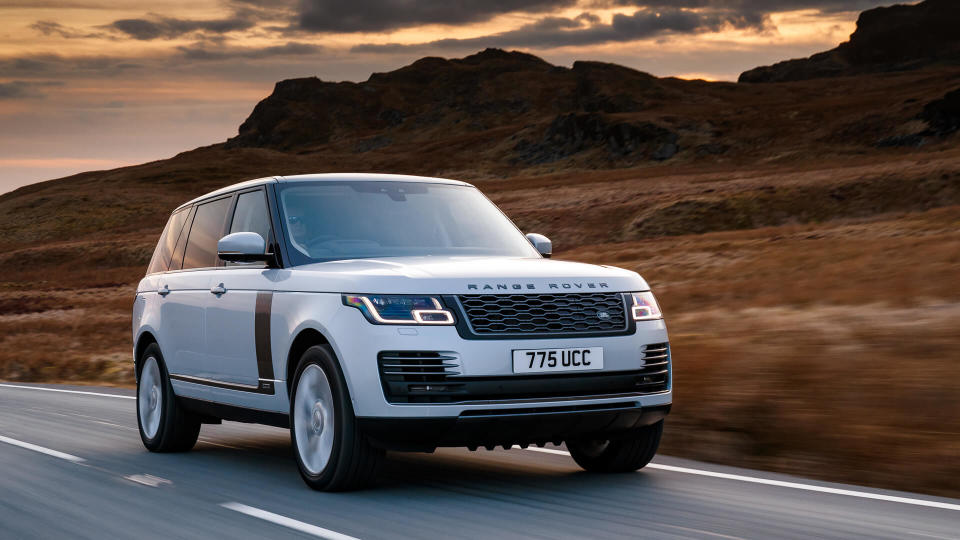
It can’t be said that Americans aren’t flush for SUV options in 2024. Despite costing more than sedans and hatchbacks, the SUV market grows every year. Regardless of inflationary or economic uncertainty concerns, SUVs comfortably dominate the auto landscape in the U.S.
With ownership costs — initial costs, financing, depreciation, insurance, fuel and assorted parking and ticketing fees — being so expensive, cars are the No. 1 wealth-killer for many drivers, especially those from lower-income households and individuals on fixed incomes.
Check Out: 6 SUVs That Last Longer Than You Think and Are Worth the Money
Read Next: 4 Things You Must Do When Your Savings Reach $50,000
According to Statista, the SUV market in the U.S. is projected to reach $333 billion this year, but with so many models available, there are some worth every penny and some that should be avoided at all costs.
Regarding SUVs you shouldn’t buy, GOBankingRates asked auto expert Chris Pyle, who operates as a full-time virtual mechanic at JustAnswer, and Mike Winter, long-time owner of MDP Diesel & Auto Repair in Jackson, Michigan, and here’s what they had to say about several SUVs/groups of SUVs that aren’t worth buying.
It’s Going Viral: Want to Retire Rich? Suze Orman Says You’re Missing This Key Money Move
Popular SUVs Mechanics Say Aren’t Worth the Cost
Land Rover’s luxury SUVs get a bad rep when it comes to value for money and reliability. For the experienced Winter, the Range Rover model has too many concerns that make it a bad choice for buyers, citing, “Terrible depreciation and resale value, very high repair costs…electrical issues, coolant issues, turbo issues.”
Pyle picked on a Land Rover too, but for him, it’s the Discovery that should be avoided. “They are expensive to maintain doing just general maintenance and when they fail, the parts and labor are high,” he said.
See More: Mechanics Explain Why You Should Never Buy These 6 Popular Car Brands
According to Pyle, the 4Runner’s problems stem from value and a squandering of the vehicle’s intended usage. “It is a great vehicle inside and outside — a purchase you will not be disappointed with,” he said. “The bad part though, it is designed to be off-road and most [people] do not do that. So, you are paying for features never used. A different and cheaper SUV to stay on the highway is better.”
Consumer Reports (CR) uses road test scores and predicted reliability for its vehicle analyses, but also relies on customer (subscriber) satisfaction and safety scores. So, its articles should approached with caution. Still, it named the Taos the second-least reliable vehicle for 2024, and Winter agrees. Volkswagen’s five-seat compact SUV may require frequent and expensive repairs. The price is right (expected 2025 MSRP should be around $26,000, per Kelley Blue Book), but is it worth it?
CR listed Jeep’s Grand Cherokee and the Grand Cherokee L among its 10 least-reliable cars for 2024, and Jeep as the worst automaker out of 34 brands. Winter lists “electrical issues, transmission issues and oil consumption” as trouble spots for the Cherokee and believes the Wagoneer is simply “way overpriced, with terrible depreciation,” among many issues.
Regarding the Wrangler and Gladiator, Pyle states, “They do not have the greatest engine longevity. [And] same as the 4Runner, they are designed to be off-road. The problem here is owners do beat them up off-road and then complain about the ride on the interstate. They are loud and sway, and the soft-top roof leaks in the rain.”
Despite its above-average RepairPal reliability ranking, in Winter’s experience, the Tucson is a “ticking time bomb” due to “major engine/transmission issues and a high engine failure rate.” As CoPilot notes, Hyundai has improved its reliability reputation in recent years, so if you’re keen on a Tucson, avoid older model years (2011, 2012, 2015-2017).
-
8. Ford Escape EcoBoost
-
9. Ford EcoSport
There are noticeable differences in size between Ford’s Escape EcoBoost trim and its EcoSport, both inside and out (the EcoSport is smaller), but, according to Winter, major repairs and durability issues plague both SUVs. Regarding the Escape, “Reliability isn’t good because of coolant issues, carbon buildup and oil consumption,” and the EcoSport is simply a “terrible drive, with major engine issues/failures and high repair costs.”
-
10. Full-Size SUVs (Chevrolet Tahoe and Suburban, Ford Expedition, Lincoln Navigator, Cadillac Escalade)
Pyle mentioned a group of troublesome full-size SUVs to avoid as well; in particular, the Chevrolet Tahoe and Suburban, Ford Expedition, Lincoln Navigator and Cadillac Escalade. “They are big, heavy, not aerodynamic and drink gas,” Pyle said. “They are meant to move the family and tow the camper. Too many [that] own these vehicles rarely have more than four occupants, and never tow anything. You are paying a lot to get a lot, but it’s not what you really need.”
-
11. High-End Luxury SUVs (Range Rover Evoque, Mercedes G550/GLS/EQS, Audi RS Q8, Lexus LX, BMW X7)
Pyle took the time to address several luxury SUVs as well. The Range Rover Evoque, Mercedes G550/GLS/EQS, Audi RS Q8, Lexus LX and BMW X7 “are just too expensive,” Pyle stated. “There are lower-priced SUVs just as nice with similar features with a cost tens of thousands less. Plus you do not have the hassle of finding a shop that will actually touch it when it breaks. Purchasing a vehicle over $100K is dumb and for most, that is way too high still.”
More From GOBankingRates
This article originally appeared on GOBankingRates.com: I’m a Mechanic: 11 SUVs I Would Never Buy and Why They Aren’t Worth It
